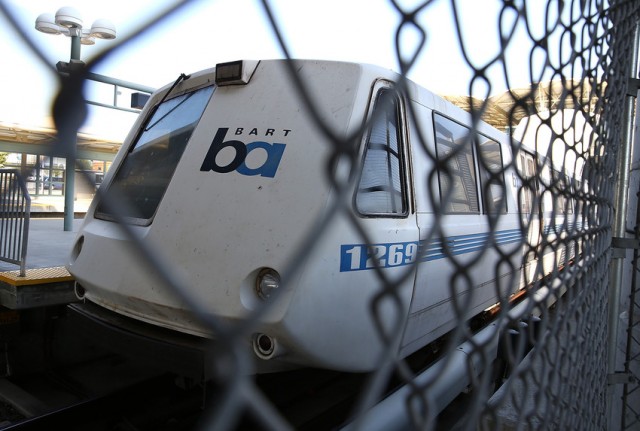
Update, Monday, Oct. 7: New Poll Numbers, Contract Gap Narrows
Suddenly, with a week to go until a 60-day cooling-off period expires, we've got signs of movement in the BART labor talks. The transit agency's two biggest unions — the BART chapter of SEIU Local 1021 and the Amalgamated Transit Union Local 1555 — announced this morning they've reached "an understanding" on pension contributions with management negotiators. They also say they're making a new proposal on two other issues that have frozen negotiations for months: pay and health-care benefits.
The unions say that they have an agreement with BART on a "cost-neutral swap" for future pension contributions (more on that below). BART wants union members to begin pension payments at 1 percent of their annual salary, rising to 4 percent of salary in the contract's fourth year.
The unions also announced new proposals on pay and medical benefits:
- A pay increase of about 12 percent over three years. That compares to their opening position of 23 percent over four years. BART has offered 10 percent over four years.
- Additional small pay increases if BART ridership increases faster than the agency forecasts.
- A 15 percent increase in health-care contributions for all BART workers. Currently, union members pay $92 a month for medical coverage, even if family members are included. BART has proposed continuing flat-rate payments for individual members and limiting payments for family coverage to the least expensive of either a Kaiser or Blue Shield plan.
Now back to that "cost-neutral swap" on pensions. Here's how Mike Rosenberg of the San Jose Mercury News summarizes it:
"Both sides actually agreed on something, even if it was just on basic math: For every dollar in pay raises an employee would get, they could contribute 72 cents toward their pensions and still wind up with the same take-home paycheck since pension contributions are taken from pre-tax wages. But that formula doesn't mean much yet since they can't agree on either how much the pension contributions or pay increases should be."
Negotiations were scheduled to resume this afternoon.